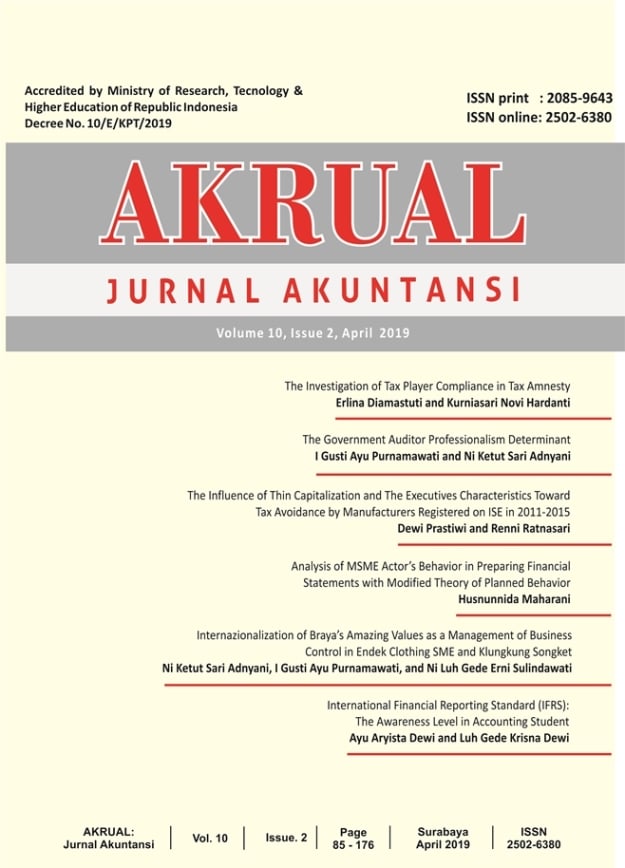Analysis of MSME Actors Behavior in Preparing Financial Statements With Modified Theory of Planned Behavior
DOI:
https://doi.org/10.26740/jaj.v10n2.p135-144Keywords:
Behavior, MSMEs, Financial StatementsAbstract
This research aimed to examine factors that can increase the MSME actors interest in preparing financial statements dan relate this interest to the MSME actors actual behavior of preparing financial statements. This research modified the Theory of Planned Behavior (TPB) by adding ˜self-efficacy construct. This research employed a survey method by using questionnaires to collect the data from the research samples of MSME actors assisted by PT. Semen Indonesia (Persero) Tbk. The samples selected were those who had prepared financial statements, amounted to 100 respondents. Moreover, the researcher used a Partial Least Square (PLS) in the data analysis. The results showed that ˜interest construct positively affected the MSME actors behavior of preparing financial statements. Attitudes, subjective norms, behavioral control, and self- efficacy also had a positive effect on the MSME actors interest in preparing financial statements. The implications of the results of this research can be used as evaluation materials by the Partnership and Environmental Development Programs of PT. Semen Indonesia (Persero) Tbk. to create more MSME actors with the capability of preparing financial statements. This capability can facilitate the process of monitoring and evaluating the performance of MSMEs by providing the required factors through training and development programs.
References
Downloads
Published
How to Cite
Issue
Section
 Abstract views: 911
,
Abstract views: 911
, PDF Downloads: 702
PDF Downloads: 702


















